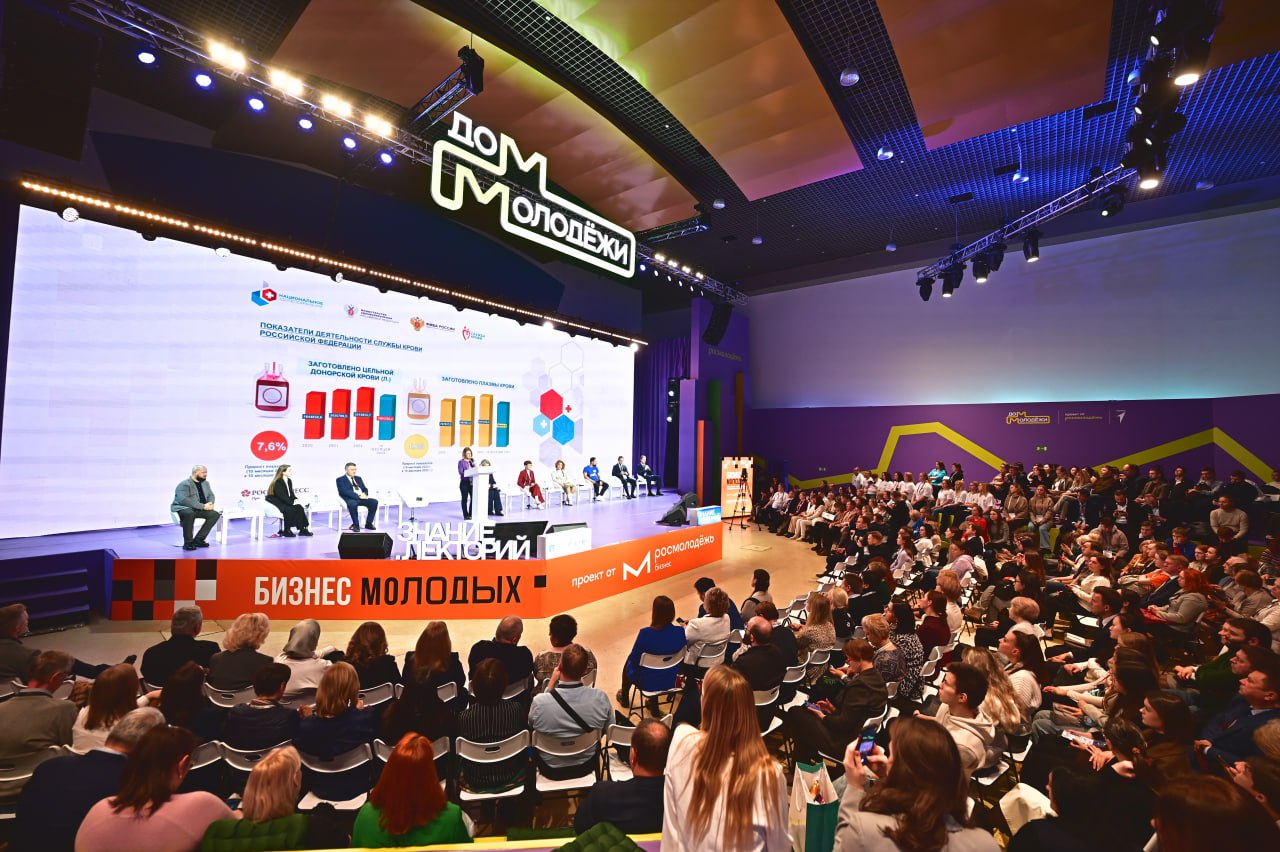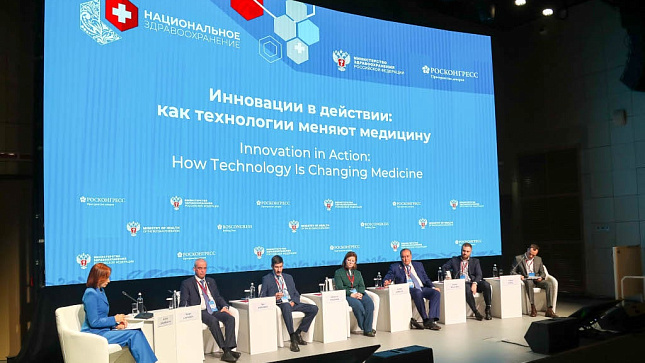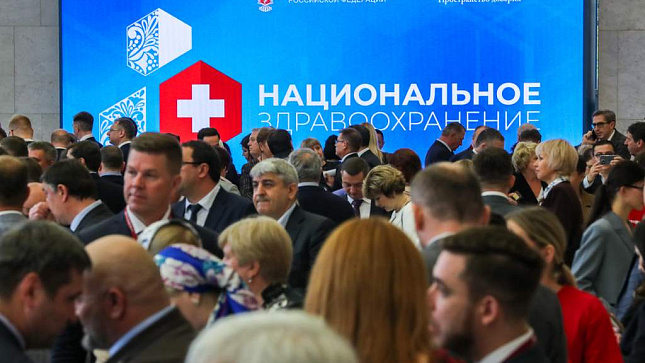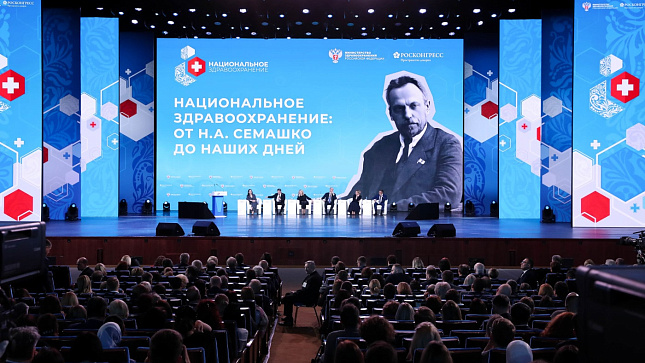
NATIONAL
HEALTHCARE 2025
International RUSSIA EXPO Features Roundtable ‘Development of Russia’s Blood Service: Donating to Protect National Security’ with Support of Russian FMBA

The Blood Service session was held as part of the programme of the 2nd National Congress with international participation “NATIONAL HEALTHCARE” and co-organized by the Russian Federal Medical-Biological Agency (FMBA). The Congress was organized by the Russian Ministry of Health and the Roscongress Foundation. The organizing partner of the event was the Russian Research Institute of Health of the Russian Ministry of Health. The session was part of the educational programme of the International RUSSIA EXPO, whose general partner was the Russian Znanie Society.
The roundtable was attended by more than 300 guests, including representatives of the government, the professional medical community, and public organizations.
During the discussion, Olga Rozanova, Deputy Head of the Department of Medical Support for Extreme Work and the Blood Service of the FMBA, presented some of the current indicators of Russia’s Blood Service. Over the first 10 months of 2023, the total number of donors has already reached 1.4 million people, which is almost 10% higher than the pre-COVID 2019 figure and comparable to the entire 2022 figure. Donors made 2.6 million donations, 99% of which were given without any pay. There was an increase in the overall volume of whole blood procurement, as more than 1.9 million litres were collected over 10 months, which is 8% higher than the same period of last year.
The roundtable participants also discussed the Blood Service’s role in the development and replenishment of the Federal Register of Bone Marrow Donors. Igor Paramonov, director of the Kirov Research Institute of Haematology and Blood Transfusion of the FMBA, noted, “The Blood Service institutions have achieved amazing results: more than 30,000 new citizens joined the Federal Register of Bone Marrow Donors following the #Let’sJoin donor marathon. And this isn’t even the final figure. Assessing the Blood Service’s current potential in terms of recruiting for the donor registry, we can safely say that this potential is at least 100,000 new registry members annually.”
Expanding the registry will enable patients in need of a healthy hematopoietic cell transplant to find a suitable donor with the most appropriate genetic code in their home country without having to appeal to international registries. In the first three quarters of 2023 alone, 75% of non-relative bone marrow transplants performed in Russia used donor materials obtained from Russian donors.
The roundtable agenda focused specifically on developing intersectoral cooperation.
Alexander Lebedev, the director of the Moscow headquarters of the Young Guard of United Russia, shared his experience of establishing a proactive civic position and realizing the potential of each participant in the youth movement to provide assistance. He also said that special attention needs to be paid to educational activities, including clarifications about the conditions for joining the Federal Register of Bone Marrow Donors.
Chair of the Medical Volunteers Russian Public Movement Anastasia Zatsepurina spoke about the implementation of the ‘Responsible Donor School’ project and the development of the Donor Clubs. At present, these clubs are actively being formed at companies and creating communities of caring people. More than 20 such clubs have been registered in Moscow alone.
“Donation is strategically important nationwide and one of the key issues in national healthcare. It is directly related to issues concerning the preservation of the life and health of Russians, which are priorities for national security. The Russian Blood Service is rapidly developing and this trend will continue in 2024. Speaking about donations, we will be talking more and more not only about blood donation, but also bone marrow and plasma donation. These three areas will become the main focuses in the work of the organizers of the donor movement in the near future,” said Yelena Stefanyuk, Director of the National Health Development Fund, Deputy Chair of the Coordinating Council on Blood and Bone Marrow Donation at the Public Chamber of the Russian Federation, and chairwoman of the Public Council of the FMBA.
The roundtable participants heard presentations about successful practices in promoting donation and a healthy lifestyle in the leading donor regions from Minister of Health of the Republic of Bashkortostan Ayrat Rakhmatullin, Minister of Health of the Arkhangelsk Region Alexander Gershtansky, and Stanislav Davydov, a member of the Council for the Development of the Donation of Blood and Its Components of the St. Petersburg Government and director of the Department of Public Relations and the Promotion of Free Donations of the City Blood Transfusion Station.
The roundtable concluded with a speech by Chairman of the FMBA Youth Council Arkady Daykhes, who shared his experience of working with youth groups and developing a responsible attitude towards donation.
All the participants in the event noted the significant development in all areas of the blood service, as well as the existence of numerous promising projects in blood and bone marrow donation.






